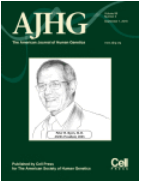 The neuromuscular junction (NMJ) is one of the best-studied cholinergic synapses. Inherited defects of peripheral neurotransmission result in congenital myasthenic syndromes (CMSs), a clinically and genetically heterogeneous group of rare diseases with fluctuating fatigable muscle weakness as the clinical hallmark. Whole-exome sequencing and Sanger sequencing in six unrelated families identified compound heterozygous and homozygous mutations in SLC5A7 encoding the presynaptic sodium-dependent high-affinity choline transporter 1 (CHT), which is known to be mutated in one dominant form of distal motor neuronopathy (DHMN7A). Here, the authors identified 11 recessive mutations in SLC5A7 that were associated with a spectrum of severe muscle weakness ranging from a lethal antenatal form of arthrogryposis and severe hypotonia to a neonatal form of CMS with episodic apnea and a favorable prognosis when well managed at the clinical level. As expected given the critical role of CHT for multisystemic cholinergic neurotransmission, autonomic dysfunctions were reported in the antenatal form and cognitive impairment was noticed in half of the persons with the neonatal form. This work highlights the complexity of cholinergic metabolism at the synapse.
The neuromuscular junction (NMJ) is one of the best-studied cholinergic synapses. Inherited defects of peripheral neurotransmission result in congenital myasthenic syndromes (CMSs), a clinically and genetically heterogeneous group of rare diseases with fluctuating fatigable muscle weakness as the clinical hallmark. Whole-exome sequencing and Sanger sequencing in six unrelated families identified compound heterozygous and homozygous mutations in SLC5A7 encoding the presynaptic sodium-dependent high-affinity choline transporter 1 (CHT), which is known to be mutated in one dominant form of distal motor neuronopathy (DHMN7A). Here, the authors identified 11 recessive mutations in SLC5A7 that were associated with a spectrum of severe muscle weakness ranging from a lethal antenatal form of arthrogryposis and severe hypotonia to a neonatal form of CMS with episodic apnea and a favorable prognosis when well managed at the clinical level. As expected given the critical role of CHT for multisystemic cholinergic neurotransmission, autonomic dysfunctions were reported in the antenatal form and cognitive impairment was noticed in half of the persons with the neonatal form. This work highlights the complexity of cholinergic metabolism at the synapse.
